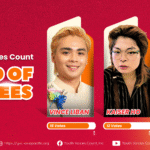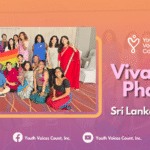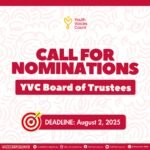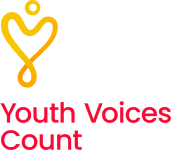Introduction
In Sri Lanka, as in many parts of the world, young LGBTQ individuals face a unique set of challenges when it comes to housing and shelter. This marginalized demographic confronts a complex web of social, economic, and cultural factors that make securing safe and stable housing a significant struggle. This brief will delve into the multifaceted issues faced by young LGBTQ people in Sri Lanka, focusing on key cities, their economic vulnerabilities, and the lack of family support that often forces them into homelessness or precarious living situations.
Urban areas, while relatively welcoming compared to rural areas, still present significant challenges in terms of housing. Discrimination, stigma, and social bias often exist, making it difficult for LGBTQ youth to access safe and affirming housing options.
Moreover, the absence of supportive adults in their lives exacerbates the challenges faced by young LGBTQ individuals. In a society where, traditional family structures hold significant importance, many LGBTQ youth experience rejection, abuse, or estrangement from their families. As a result, they are often forced to leave their homes, either voluntarily or under duress. This lack of familial support deprives them of the safety net that most young people rely on when seeking housing.
In many cases, young LGBTQ individuals in Sri Lanka migrate to larger cities, hoping to find greater acceptance and opportunities for community support. However, this migration often leads to overcrowding, competition for limited resources, and heightened vulnerability to exploitation.
Methodology
The methodology involved conducting a discussion with members of the youth LGBTQ community who are directly affected by these challenges. The following steps were undertaken:
- Participant Selection: A diverse group of young individuals, including representatives from different sexual orientations, gender identities, ages, and backgrounds, were selected to ensure a comprehensive understanding of the issues faced by the Gender struggle.
- Discussion Format: A focus group discussion (FGD) format was utilized to encourage open and interactive conversations among the participants. The FGD allowed for the exchange of personal experiences, opinions, and perspectives related to the identified challenges.
- Facilitation: The discussion was facilitated by a trained moderator who ensured that all participants had an equal opportunity to express their views and experiences. The moderator encouraged active participation and maintained a respectful and inclusive environment throughout the discussion.
Challenges faced by LGBTQ people in the context of housing and shelter
The housing and shelter issues faced by young LGBTQ individuals in Sri Lanka are deeply rooted in a complex web of challenges that make it difficult for them to secure safe and stable accommodations. These issues can be summarized as follows:
- Leaving Family Homes or Forced to Leave: Many young LGBTQ individuals in Sri Lanka are either compelled to leave their family homes due to discrimination and rejection upon coming out or choose to leave voluntarily to escape hostile environments. This initial displacement sets them on a precarious path to finding safe housing.
- Migration to Urban Areas: A significant number of LGBTQ youth migrate to urban areas in search of greater acceptance and support. However, this often leads to increased competition for limited affordable housing, exacerbating their struggles.
- Unemployment or Lack of Financing: High rates of unemployment among LGBTQ youth make it difficult for them to secure housing independently. Discrimination in the job market can limit their income potential, making it challenging to afford rent or save for a down payment on a house.
- Stigma and Discrimination Based on SOGIE: Discrimination based on sexual orientation, gender identity, and expression (SOGIE) is pervasive in Sri Lanka. LGBTQ individuals often face discrimination from landlords, neighbors, and even housing providers, which can lead to denial of housing or eviction.
- Lack of Legal Identification Documents: Obtaining legal identification documents that accurately reflect one’s gender identity can be a significant challenge for transgender and gender non-conforming individuals. Without these documents, accessing housing, employment, and social services becomes even more complicated.
- Increased Rents and Economic Crisis: Sri Lanka’s economic challenges has resulted in inflation, leading to increased rents. LGBTQ youth, who often face discrimination in the job market, are disproportionately affected by these rising costs, making it harder for them to secure affordable housing.
- Unsafe Housing and Environments: Some LGBTQ individuals are forced to accept substandard or unsafe housing conditions due to limited options. These environments can expose them to health and safety risks, further contributing to their vulnerability.
- Young transgender people and challenges to access housing and shelter
The challenges faced by transgender youth who experience rejection from their families are particularly acute in the realm of housing and shelter. This discrimination not only impedes their access to safe and inclusive housing options but also exposes them to heightened risks of violence, exploitation, and adverse health outcomes. Transgender youth who are estranged from their families often find themselves struggling to secure safe and welcoming housing. Discrimination and prejudice can lead to outright rejection from landlords and potential roommates, leaving them with limited choices.
Homelessness among transgender youth is a severe consequence of this housing discrimination. Without a stable place to live, they become more vulnerable to physical and sexual violence, exploitation, and engagement in risky behaviors, all of which contribute to their overall well-being and safety being compromised.
The stress and uncertainty associated with housing instability can exacerbate mental health challenges among transgender youth, including depression and anxiety. Additionally, inadequate housing conditions can lead to exposure to adverse weather, substance abuse, and inadequate access to healthcare, further jeopardizing their physical well-being.
Recommendations
In addressing these issues, it is crucial for Sri Lanka to work towards implementing comprehensive anti-discrimination laws that protect LGBTQ individuals from housing discrimination. Additionally, initiatives that provide economic opportunities, affordable housing, and access to support services tailored to the needs of LGBTQ youth are vital. Collaborations between government agencies, civil society organizations, and the private sector can play a significant role in creating safer and more inclusive housing options for young LGBTQ individuals in Sri Lanka.
For Civil Society Organizations and Non-government Organizations
Civil Society Organizations (CSOs) and Non-Government Organizations (NGOs) play a crucial role in advocating for and supporting the rights and well-being of young LGBTQ individuals facing housing and shelter challenges in Sri Lanka. Here are some recommendations for these organizations to better address the multifaceted issues faced by this marginalized group:
Awareness raising and sensitization
- Conduct educational campaigns and workshops to raise awareness about the unique challenges faced by young LGBTQ individuals in terms of housing and shelter.
- Promote understanding and acceptance of LGBTQ rights and issues among the public, government officials, and service providers.
Legal Advocacy and Policy Reform
- Work to reform or introduce anti-discrimination laws and policies that protect the rights of LGBTQ individuals in housing and shelter.
- Advocate for inclusive housing policies that specifically address the needs of LGBTQ youth and protect them from discrimination and homelessness.
Safe Housing Initiatives
- Establish safe and inclusive housing options or shelters tailored to the needs of young LGBTQ individuals. These spaces should be welcoming, free from discrimination, and sensitive to their unique concerns.
- Collaborate with government agencies to secure funding for such initiatives.
Family Reconciliation Efforts
- Develop programs aimed at facilitating communication and understanding between LGBTQ youth and their families, with the goal of preventing family rejection and homelessness. Provide resources and support to families to help them become more accepting and supportive.
Research and Data Collection
- Conduct research to gather data on the specific challenges faced by young LGBTQ individuals in different regions of Sri Lanka. This data can be used to inform policies and initiatives.
For Government and Donors
Both government agencies and donors can play a critical role in addressing the housing and shelter challenges faced by young LGBTQ individuals in Sri Lanka. Here are some recommendations for these stakeholders
For Government
Anti-Discrimination Legislation
- Enact and enforce comprehensive anti-discrimination laws that explicitly protect LGBTQ individuals from housing discrimination. Ensure that these laws cover both public and private housing sectors.
Public Awareness and Sensitization
- Launch public awareness campaigns to foster understanding and acceptance of LGBTQ rights and issues among the general population. This can help reduce stigma and discrimination in society.
- Provide training programs for government employees, including law enforcement, social workers, and healthcare professionals, to sensitize them to LGBTQ issues and ensure they provide respectful and inclusive services.
Education and Awareness in Schools
- Incorporate LGBTQ-inclusive curricula in schools to reduce bullying and discrimination and promote acceptance from an early age.
For Donors
Financial Support
- Provide funding to local NGOs and organizations working to address housing and shelter challenges for young LGBTQ individuals. These funds can be used to establish and maintain safe housing initiatives.
Capacity Building
- Offer support for capacity-building initiatives for local organizations, enabling them to provide effective services and advocacy for LGBTQ rights.
Collaboration
- Encourage collaboration between local LGBTQ organizations and other stakeholders to create a more coordinated and effective response to the housing challenges faced by LGBTQ youth.
By implementing these recommendations, government agencies and donors can contribute to creating a more inclusive and supportive environment for young LGBTQ individuals in Sri Lanka, helping them secure safe and stable housing and addressing the challenges they face due to social, economic, and cultural factors.
Recommendations for Transgender community
Transgender individuals, in particular, face unique challenges and vulnerabilities within the LGBTQ community. To address the housing and shelter issues specifically affecting transgender persons in Sri Lanka, the following recommendations are essential
Trans Gender-Specific Housing
- Establish shelters or housing options that are explicitly designed for transgender individuals. These spaces should be culturally sensitive, safe, and affirming of transgender identities and gender expressions.
Cultural Sensitization
- Conduct sensitivity training for housing providers, government officials, and healthcare professionals to ensure respectful and inclusive services for transgender individuals.
Legal Gender Recognition
- Simplify and speed up legal gender recognition for transgender individuals. This recognition is vital for accessing appropriate housing and shelter options.
Economic Empowerment
- Offer vocational training, job placement programs, and scholarships specifically targeting transgender individuals to empower them economically and enhance their prospects for stable housing.
Access to Healthcare
- Ensure that transgender individuals have access to healthcare services, including hormone therapy and gender-affirming surgeries, which are critical for their overall well-being. Create safe spaces and support groups specifically for transgender individuals to reduce isolation and provide a sense of community and belonging.
Transgender-Friendly Legislation
- Advocate for legal protections and policies that recognize and respect the gender identity and expression of transgender individuals in all aspects of life, including housing and shelter.
Conclusion
“No Place to Call Home” highlights the urgent need for action to address the challenges faced by young LGBTQ individuals in Sri Lanka regarding housing and shelter. It is essential to combat discrimination, create inclusive policies, and provide safe and affirming spaces to ensure that all young people, regardless of their sexual orientation or gender identity, have a place to call home where they can thrive and be themselves. This issue demands attention and commitment from individuals, communities, and policymakers to create a more inclusive and equitable society for all.
In post-COVID Sri Lanka, economic challenges may exacerbate these issues, as marginalized communities, including transgender individuals, often face disproportionate economic hardships. Access to jobs and financial stability can be limited, making it even more critical for parents to support their transgender children during these challenging times.







